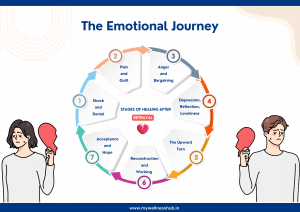Me Too | Why don’t women report sexual harassment or assault?
By Madhu Kosuri
Last Updated: May 18, 2023
‘Me Too’ movement was founded in 2006 by Tarana Burke, a 45-year-old African-American from New York, to help survivors of sexual violence, particularly young women of colour from low-wealth communities. The initial idea behind Me Too was empowerment through empathy, letting other women know they’re not alone in the journey. The reports of sexual harassment towards women has always been shut down. The life-changing movement began when Burke talked to a girl who revealed that her mother’s boyfriend had been sexually abusing her. She didn’t know what to say, she just said ‘me too’.
She was able to create a storm with just 500 Twitter followers.
The movement became an internet sensation when actress Alyssa Milano stumbled upon this phrase and tweeted on October 16, 2017. She said, “If all the women who have been sexually harassed or assaulted wrote “Me Too” as a status, we might give people a sense of the magnitude of the problem”.

Sexual harassment: Twitter Ads info and Privacy
Now, it is being used by women across the globe to share their anguish against sexual harassment. This movement spread to multiple languages, including Arabic, Parsi, French, Hindi, and Spanish. Today, women in 85 different countries are using the hashtag to bring attention to the violence and harassment they face in daily life and to demand change.
Despite such a popular movement, every time a high-profile sexual harassment or assault case is reported, people ask, “Why don’t the victims of sexual harassment come forward sooner?”. This question seems to shift the blame onto the alleged victims. It is like asking them why they waited until now rather than trying to understand the agony these women experience. Studies of victims of sexual harassment have indicated that roughly three to four people experiencing such harassment never tell anyone in authority about it. Instead, the women typically “avoid the harasser, deny or downplay the gravity of the situation, or attempt to ignore, forget, or endure the behaviour”. It is indeed very common for victims to delay disclosing their trauma. Even highly educated people are continually baffled by why women don’t come forward.
Why Sexual harassments are usually not reported?
Many researches on the psychology of abuse and an analysis of the experiences of victims of sexual abuse, sexual assault, and sexual harassment were done. They reveal some of the reasons why victims of sexual harassment don’t come forward.
Shame
The most fundamental reason why women don’t come forward to report sexual harassment or assault is shame. Shame is at the core of the intense emotional wounding women experience when sexually violated. The victim feels invaded and defiled while simultaneously experiencing the indignity of being helpless and at the mercy of another person. Shame is a feeling deep within us of being exposed and unworthy.
The strong sense of shame often causes victims to
- a) blame themselves for the sexual misconduct of their perpetrator (want to hide)
- b) feel isolated (different from the rest)
- c) feel humiliated (unable to defend self, feel helpless)
- d) receiving blames from others (the way they dressed).
This sense of shame has a cumulative effect. Depending on how much a woman faces the shame by previous abuse or bullying, she may try to forget the incident, put her head in the sand, and pretend it never happened.
Denial, Minimization
The tendency to receive blames and overwhelming with shame makes these women even deny or minimize the sexual harassment. They may refuse to believe that the treatment they endured was abusive. Such women downplay how much the abusers have harmed them by sexual harassment and sexual assault. They may compare themselves with others who were brutally raped and would feel that what they have experienced is nothing. And, they would like to move on and forget the whole thing.
However, they would become victims of depression, a major after-effect of sexual harassment or assault. There would also be some women who are good at making excuses for their abusers. Victims of sexual assault have reported being sorry for the abuser or feeling that he could not help himself. As a part of the minimization process, some women may convince themselves that they are the only victim of a sexual harasser or abuser. Only when other women step forward that a perpetrator abuses them do they realize that they are dealing with a serial abuser. The Me Too movement has made more women ready to report abuse.
Fear of the Consequences

Fear of the repercussions is a huge obstacle women face when it comes to reporting sexual harassment or assault — fear of losing their job, fear they won’t find another job, fear the superiors won’t promote them, fear of losing their credibility, fear that people brand them as a troublemaker, fear the industry backlists them, or fear of their physical safety. It is true for a young woman who faces harassment in her first job, an actress trying to make her way in the entertainment business, or a career woman desperately trying to break through the glass ceiling.
One significant fear many victims report is that nobody believes them. People tend to believe these women make up these stories for attention or to get back at a man who rejected them. The police and law scrutinizes victims’ reports thoroughly, and in high-profile cases, they label them as opportunists, blame for their victimization, and punish for coming forward.
Another fear is that of retaliation. Sexual harassers, especially in positions of power, frequently threaten their victims’ lives, jobs, and careers. Victims have reported losing their jobs and their careers or reputations. This fear of retaliation among victims is present in all industries – movies, politics, media, technology etc.
Read more: How to Say No to Your Boss | Say No to the Boss in a right and clever way
Low Self-Esteem
Some victims have such low self-esteem that they don’t consider what happened to them to be very serious. They don’t value or respect their bodies or integrity, so if someone violates them, they downplay it. A victim whose boss has sexually harassed her in her early twenties, felt it was no big deal. She did not anticipate the short and long-term consequences. She took up drugs and felt she had nothing to lose because she stopped caring about herself.
Sexual violations wound a woman’s self-esteem, self-concept, and sense of self. The more a girl or woman puts up with, the more her self-image becomes distorted. Little by little, acts of disrespect, objectification, and shaming whittle away at her self-esteem until she has little regard for herself and her feelings. Even the most confident girl cannot sustain her confidence because of this sexual harassment. She feels so ashamed that holding her head up high is difficult. She finds it difficult to have the motivation to continue on her path, whether it be college or a career.
Feelings of Hopelessness and Helplessness
Research has documented that victims who cannot see a way out of an abusive situation soon develop a sense of hopelessness and helplessness. Learned helplessness is a condition in which a person suffers from a sense of powerlessness arising from a traumatic event or persistent failure to succeed, and they tend to simply give up and accept their fate. Women feel it is useless to come forward because they see how society treats others. They feel it is hopeless because no one believes and this will taint or ruin their reputation. Women who have already faced sexual harassment feel especially helpless, since the chances are extremely high that they did not receive the justice they so desperately needed. These fears can cause women to think there is nowhere to turn, to feel trapped and even hopeless.
Sexual harassment: A History of Sexual Violence
Women who had already faced sexual abuse as a child or by sexual assault as an adult are far less likely to speak out about sexual harassment at work or school. Research shows that survivors of previous abuse and assault are at a higher risk of facing sexual abuse again. Those who experienced previous abuse will likely respond to overtures of sexual harassment much differently than women didn’t have such traumatized experience. The previous victims are more likely to keep quiet about the abuse since they may have already had the experience of facing disbelief and injustice from the society.
Lack of Information
Recent statistics show that a very high percentage of women suffer sexual harassment on the job. And yet many women, even highly educated ones, don’t have knowledge about exactly what constitutes sexual harassment, don’t recognize sexual harassment as a real threat. They don’t understand how sexual harassment or assault affected them, nor do they understand the real world consequences of not reaching out for help or not reporting it.

For example, the emotional effects of this type of harassment can have devastating psychiatric effects, including anxiety, loss of self-esteem, post-traumatic stress disorder and suicidal behaviour.
Disbelief, Dissociated, or Drugged
Finally, sometimes women don’t report sexual harassment or assault because the abusers mostly drug or inebriate them. Because of this, women feel dissociated at the time of the abuse. Abusers drug the women and girls before they commit such unethical practices. It is because of this, women have only vague memories. Others who were so drunk before the assault, doubt their memories. Because of the violence, some women feel so traumatized. Their memory dissociates during the attack and have only vague memories. It usually takes one woman coming forward before a woman is able to trust her memories of the experience. Unless other women come forward to make a complaint about someone, most will continue doubting themselves and assuming people will doubt them if they report.
We need to understand that women have difficulty coming forward for several reasons. These women deserve recognition of how difficult it is and our compassion for what they have been through. Society needs to encourage women to begin to push away their internalized shame with anger and to learn how to give the shame back to their abusers. Instead of focusing so much energy on determining why victims don’t report, it would be far more productive to ask, “Why do we allow men to continue sexually harass and assault women?”
Perhaps even more important, we need to stop asking why victims wait to report and instead focus on how we can better support victims in their quest for justice and healing.
Book your Free Consultation Today
Parent/Caregiver Info:
Client’s Details:
* Error Message









